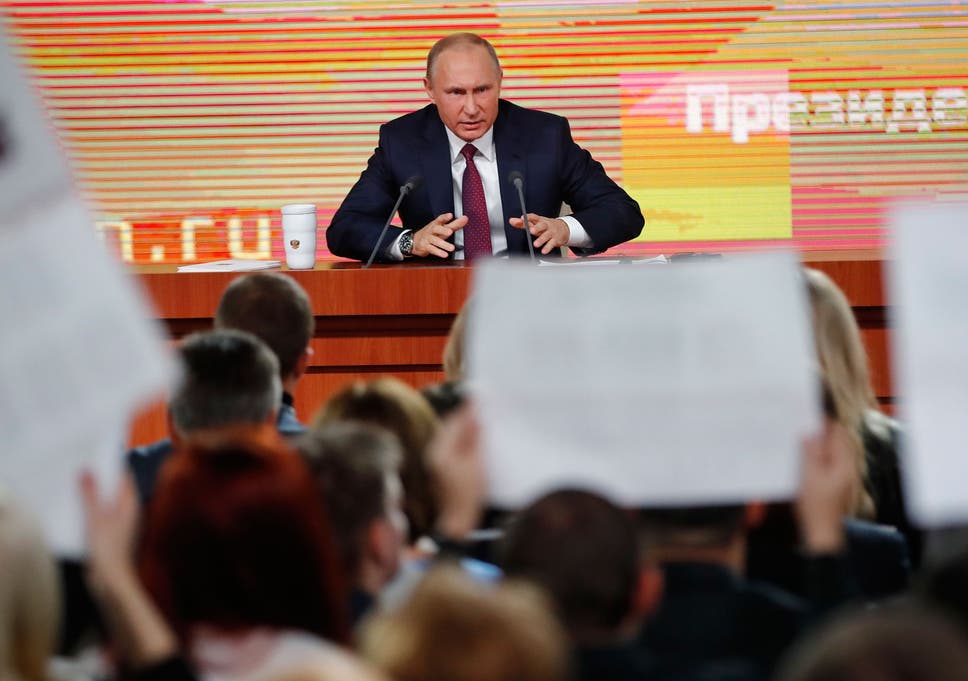Unappeasable National and Personal Grief
"It is impossible to overestimate the significance of the Smolensk crash in the life of Jaroslaw Kaczynski -- and in the life of Polish politics in general."
"For Kaczynski, public debate is no longer a political one -- between people of different values, it's an eschatological war between good and evil."
Marek Migalski, lecturer, University of Silesia, Katowice, Poland
| Poland's ruling party leader Jarosław Kaczyński, next to the country's new Defence Minister Mariusz Błaszczak (second from right), during monthly remembrance ceremonies in front of the Presidential Palace in Warsaw. Photo: PAP/Marcin Obara |
In 2010, to mark an anniversary of the Katyn Forest massacre where in the early days of the Second World War, the place became a killing ground when Red Army soldiers slaughtered over 20,000 Poles, then-President Lech Kaczynski died as his plane mysteriously crashed over Smolensk. Along with him the top ranks of the Polish military and members of parliament perished, the memorial ceremony they meant to honour by attending, a destination they would never meet.
Lech Kaczynski's twin brother Jaroslaw was devastated, he clung to the hope that his brother might somehow have survived the crash. Facing reality, he reached out to conspiracy theories involving Russia. Now effectively leader of Poland in his turn, Jaroslaw Kaczynski, leading the ruling Law and Justice party, despite two independent inquiries into the crash having concluded that inclement weather and human error were responsible for the crash, believes otherwise.
 |
| WARSAW, Poland (AP) — As Poles mark the eighth anniversary Tuesday of a plane crash in Russia that killed President Lech Kaczynski and dozens of other top Polish officials, new monuments are going up and streets are being renamed to honor the victims of the national tragedy. |
Eight years on, his brother long dead, Jaroslaw Kaczynski, along with other Eastern European members of the European Union appear to have shrugged off the democratic values that the ruling body of the EU feels all its members must adhere to. Warsaw and Brussels confront one another in a disagreement over Poland's trajectory seeming to approximate authoritarian rule, a relaxation of the judicial system and a rejection of EU values, particularly alongside orders to accept its 'share' of refugees and migrants flooding Europe
Kaczynski's alliance has been forged with Central and Eastern Europe whose nationalist leaning he shares with Hungary's Viktor Orban, and which is having its impact within the larger geographic sphere. Kaczynski is defiant in reflection of the Brussels meeting scheduled to discuss whether to penalize Poland for alterations it has made to its judicial system, characterized by law experts as undermining the rule of law. The concern is that nations like Slovakia and Romania may emulate this "illiberal democracy".
That Jaroslaw Kaczynski remains wedded to the belief that his brother's death owes to Russian intrigue has opened the way to launch another investigation under the imprimatur of the ruling Law and Justice party. The party itself appears to flirt with the idea of a thermobaric bomb having blown up the plane carrying Lech Kaczynski, his cabinet members and top-flight military. Failing that the use of artificial fog to make the plane's landing on the runway difficult.
The party's own national political opponents who opposed Lech Kaczynski's re-election bid in 2010 are also held to have been in some way responsible, alongside the Kremlin. Government prosecutors acting under the authority of the Law and Justice party ordered the exhumation of victims of the plane crash, promising that the completed inquiry would present new evidence revealing the truth of what happened on that fateful day. Their suspicions fuelled by Russia's track record in political assassinations.
 |
| Russian President Vladimir Putin speaks during his annual news conference in Moscow ( AP ) |
Labels: European Union, History, Poland, Russia, Tragedy

<< Home